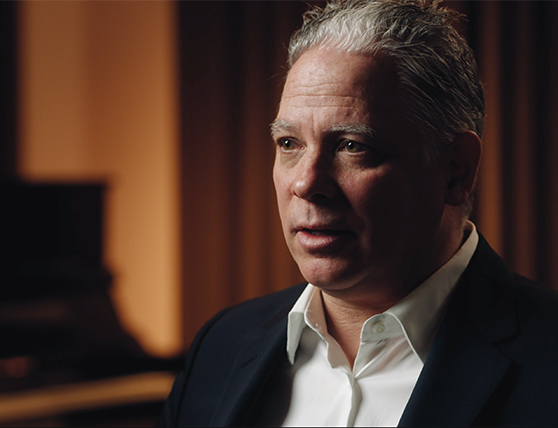Germano Studios | The Hit Factory - Troy Germano, Matthew Sim & Jason Staniulis

Music industry executive and owner of Germano Studios | The Hit Factory, Troy Germano is a name you should familiarize yourself with if you haven’t already. Join us in this episode as Troy shares with us the concept behind his Manhattan-located facility and offers valuable insight into the status of today’s recording industry.

Germano’s career in the industry began when he joined his father, singer, producer, and studio-owner, Ed Germano at the legendary Hit Factory in New York City. Over time, as The Hit Factory expanded, so did the younger Germano’s interests, and by the early 90s, he designed and built a state-of-the-art studio that would become the hallmark of The Hit Factory's new headquarters. By 2002, the number of music studios under his supervision had grown to sixteen recording/mixing rooms, six mastering suites and six writing rooms between New York and Florida. However, in 2003, following the passing of his father, Germano left the family business and spent years building and designing award-winning studios around the globe before building his own—the world-class Germano Studios, which opened in 2008.
In 2019, Germano reacquired the rights to The Hit Factory name, adding it to the Germano Studios name as a dual-branding effort. Under Germano Studios | The Hit Factory umbrella, over seven hundred Gold and Platinum-certified albums have been produced, ranging from Bruce Springsteen’s Born In The U.S.A., Kane West’s Yeezus and Michael Bublé’s Crazy Love, just to name a few.

The concept behind Germano Studios was simple: create a multi-genre recording studio. “That’s kind of what we’ve achieved here, which is what made The Hit Factory very successful. I think a lot of times, recording studios tend to focus on one thing—they’re a rock studio, or they’re a rap studio. I think that doesn’t help the engineering,” he says. “I think it’s important to develop engineers that you have to be working on different varieties of music on a daily basis. And, I think that’s what actually turns the guys that work for me into incredible engineers.”
“The training [at Germano Studios | The Hit Factory] really has helped me to understand the language between different styles so I can be [a] facilitator to bring all different sounds and creativity across different styles,” says Matthew Sim, one of the studio’s mixing engineers. “Everybody is touring through New York at some point, so you’ve got artists from all over the world... It gives me a different perspective of how I approach music...some jazz musicians want to have a hip-hop sound, so you’ve got to be able to crossover to different kinds of music.”
And, the extensive collection of certified albums displayed on the walls throughout the studio proves that the clientele includes musicians of all genres. From rock-legends like Jon Bon Jovi and The Rolling Stones to pop-stars like Ellie Goulding and Lady Gaga, Germano Studios | The Hit Factory is well recognized among the world’s leading artists.
Both control rooms inside Germano Studios | The Hit Factory feature premiere equipment, including two 48-input SSL Duality consoles, a large array of microphones and a comprehensive list of plug-ins. “That ability for clients to be able to sway back and forth from Studio 1 to Studio 2 really makes life very easy,” explains Germano. Studio 1 is designed primarily for tracking and mixing, while Studio 2 is utilized more for mixing projects, vocals, writing sessions, and overdubs. While many artists can make records at home now, Germano knows it’s not the same level or experience offered by professional recording studios. “In today’s world, as everybody’s building a studio at home, these are not studios. People, please understand. These are production rooms at home, they are not recording studios,” he says. “Recording studios are Abbey Road, Capitol Records, Record Plant.”

“Unfortunately, there are a lot of engineers that come in that are really good at making records today but they haven’t had the experience of being in rooms that are large with isolation booths and understanding microphones and microphone technique,” he adds.
In terms of engineers, keeping a smaller staff of fewer than ten people, as opposed to 130 at the original Hit Factories has helped to establish what Germano can only compare to athletes earning more time on the court. “The idea here is to really help these guys become producers and mixers—potentially songwriter mixers. There’s an emphasis on developing and getting them involved in all the sessions besides just being assistant engineers and I think I’ve been really successful with that, especially Matthew [Sim] and Jason [Staniulis].”
For the engineers, their approach to working with artists is to get them acclimated to the space, to understand their workflow and to decide what will serve as the foundation of a session. “It’s about getting them comfortable as quickly as possible,” says Jason Staniulis, one of the studio's recording engineers.
The musician-friendly environment of The Hit Factory lives on at Germano Studios, as does the artistic process of making music. “We try to be there and be vibing with [the artists] and make sure they’re inspired to perform,” adds Sim.
As far as mic selection, Sennheiser and Neumann are among the favorites. “We love the Sennheiser MKH 800,” shares Germano. “It’s a microphone that came in here when we were recording fixes on Hello Dolly, the Bette Midler play that was on Broadway a couple of years ago. This microphone just has incredible versatility and our engineers were thrilled to have multiple pieces of that here on a daily basis available. Not just for Hello Dolly, but for every other record that we make here.”


